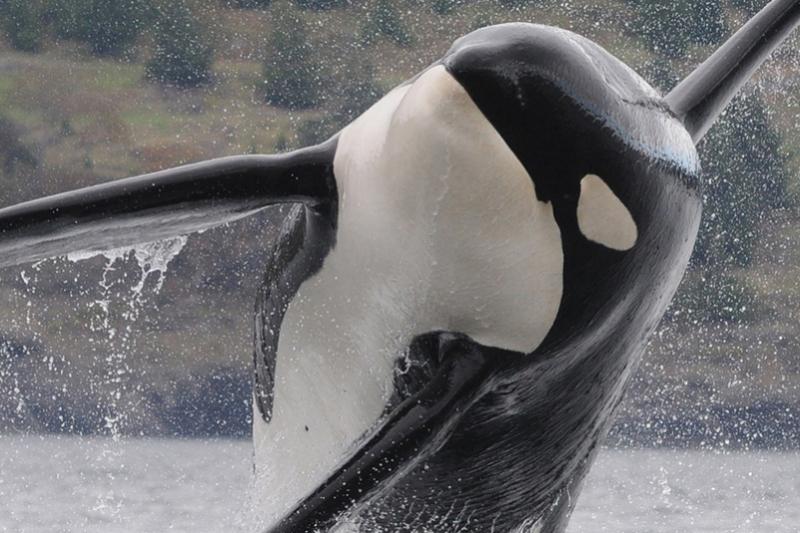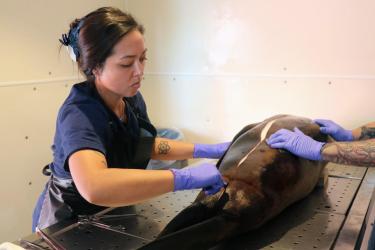The endangered Southern Resident killer whale is an icon of the Pacific Northwest and inspires widespread public interest, curiosity, and awe around the globe. Unfortunately, their population level is the lowest we have seen it in several decades.
Beginning in the late 1960s, a live-capture fishery removed nearly 50 whales for display at marine parks and resulted in an immediate steep decline in the population. Live captures of this population ended in the early 1970s, and since that time the population has gone through several periods of growth and decline.
Threats
- Scarce supply of their preferred food—Chinook salmon.
- Noise and overcrowding from boat traffic.
- High levels of contaminants.
How NOAA is Helping
We study how these threats are affecting the whales. Our research informs conservation and management actions to address those threats. We use:
-
Passive acoustic monitors in the environment to understand how the whales are using their habitat.
-
Digital acoustic tags to learn more about their behavior, such as how they are diving and responding to sound, and how, in turn, that might affect their ability to find food.
-
Aerial drones to take photos of the whales to look at body condition, to see if they are getting enough to eat, and if any whales are pregnant.
We also collect scales and tissue from the prey that they’re eating, and get breath samples to understand pathogens that might be causing disease for the whales. We collect killer whale poop to learn more about what the whales are eating, which yields a wealth of information on the genetics of the salmon, individual whales, hormones, and contaminants.
Future Conservation Actions
- Increasing critical prey for the whales.
- Focusing on whale health.
- Working to understanding what's causing problems with their health and reproduction.



